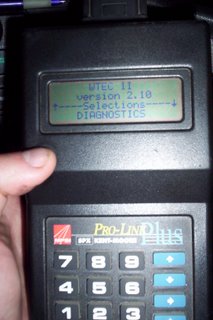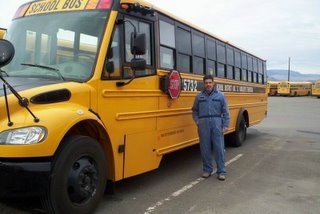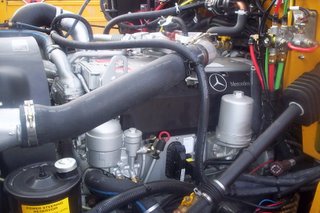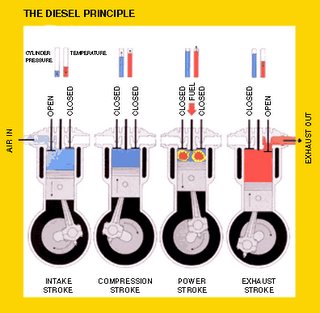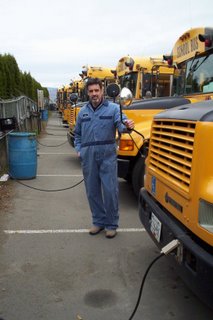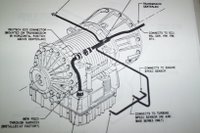
ALLISON MD 3060 AUTOMATIC TRANSMISSIONS
Allison MD 3060 Automatic transmissions are electronically controlled and the only transmission we use in our school bus fleet.
The one element these transmissions do not get along with is moisture which causes problems like crossed signals and fault codes. In our Thomas ER pusher buses the engine and trans. are located in the back end where all the moisture, salt, dirt etc. is sucked up like a huge vacuum. Wiring is another problem, mainly from rubbing along the frame and constant vibration from being encased in plastic loom.
Of course these problems are not caused by the manufacturer, the Allison MD 3060 is an excellent design that monitors every input and output and adjusts transmission operation instantly when required.
Below are some pics of the PRO - LINK, the diagnostic tool needed to troubleshoot these transmissions.
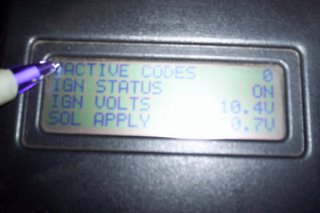
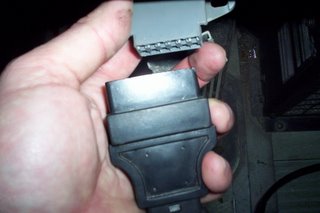
Allison MD 3060 Electronic transmissions require a'Pro-Link' reader for troubleshooting purposes. This tool connects to a data link that will tell you what's going on with the trans. including trouble codes, temperatures, clutch engagement, rpm's, throttle position and much more.
The Pro-Link also performs on-board troubleshooting with action requests. With pressure guages hooked up to each clutch pack pressure port, we can use the Pro-Link to engage whatever clutch we desire while the bus is stationary. Comparing each clutch pressure reading to main pressure indicates if there is a worn clutch pack, which will cause excessive heat and slippage.
This tool is invaluable and without it you're pretty well sunk unless you can physically find open or shorted wiring. We have been finding a lot of faulty wiring from the Electronic Control Module to the transmission externally mounted speed sensors and Throttle Position Sensor. The wiring is a twisted pair so we replace it all, with new shielded wiring. This is much faster compared to finding where the exact fault is and doing a spot repair.
RECOMMENDED READING:
